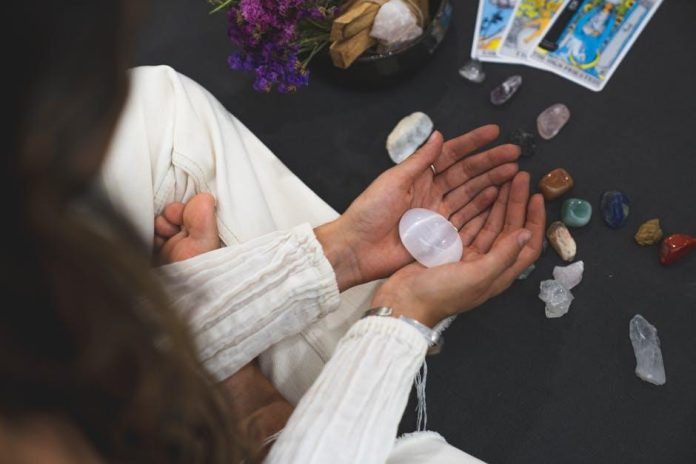In a world where the boundaries between science and spirituality often blur, a fascinating debate emerges: should energy healing practices like Reiki find a place in mainstream healthcare? Imagine walking into a modern hospital, where sleek machines hum and digital screens flicker, only to find a serene room adorned with soft lighting and tranquil music, where a practitioner gently channels unseen energies to promote healing. It’s a juxtaposition that challenges our conventional understanding of medicine. As we stand at the crossroads of ancient wisdom and contemporary science, this article delves into the enigmatic realm of energy healing, exploring its potential role and legitimacy within the established medical community. Whether you’re a skeptic or a believer, the journey promises to be as enlightening as it is thought-provoking.
Exploring the Science Behind Energy Healing
Energy healing practices such as Reiki have sparked both curiosity and skepticism within the scientific community. The fundamental premise of Reiki revolves around the transfer of universal life energy from the practitioner to the patient, purportedly aiding in physical, emotional, and spiritual healing. Although mainstream healthcare primarily relies on evidence-based treatments, there is a growing interest in understanding the potential benefits of energy healing. Scientific studies have explored various aspects of Reiki, including its impact on stress reduction, pain management, and overall well-being. However, the lack of concrete, reproducible evidence often leaves the medical community divided on its efficacy.
Some key areas of interest in this domain include:
- Biofield Research: Investigating the human energy field and its interactions with physical health.
- Placebo Effect: Assessing whether the perceived benefits of Reiki stem from psychological factors.
- Integrative Medicine: Exploring how Reiki can complement traditional treatments to enhance patient care.
As research continues, the integration of energy healing practices like Reiki into mainstream healthcare remains a topic of debate, requiring a balanced approach that considers both scientific scrutiny and holistic perspectives.

Historical and Cultural Perspectives on Reiki
Reiki, a practice originating from Japan in the early 20th century, offers a unique blend of spiritual and therapeutic elements that have captured the interest of both practitioners and patients worldwide. Developed by Mikao Usui, Reiki is rooted in ancient Buddhist teachings and Shinto traditions, emphasizing the flow of universal life energy through the body. The practice involves a Reiki master or practitioner channeling this energy to the patient through gentle hand placements, believed to promote physical, emotional, and spiritual healing.
Culturally, Reiki has evolved and adapted as it spread from Japan to the West, incorporating diverse influences while retaining its core principles. Its integration into various cultures has led to a range of practices and interpretations, making it a versatile form of complementary therapy. Key cultural perspectives include:
- Japanese Tradition: Emphasizes discipline, meditation, and the connection to spiritual roots.
- Western Adaptation: Focuses on the therapeutic and holistic health benefits, often integrating with other forms of alternative medicine.
- Global Acceptance: Recognizes the universal appeal and adaptability of Reiki across different cultural and spiritual contexts.
Understanding these historical and cultural dimensions can enrich the discussion on whether Reiki should be embraced by mainstream healthcare, highlighting its potential to complement traditional medical practices through a holistic approach to healing.

Patient Experiences and Outcomes with Reiki Therapy
Many patients who have undergone Reiki therapy report a range of positive experiences and improved outcomes. Some of the commonly cited benefits include:
- Reduction in stress and anxiety levels
- Enhanced emotional well-being
- Alleviation of chronic pain
- Improved sleep quality
These anecdotal reports are supported by some preliminary studies, which suggest that Reiki may contribute to holistic health by promoting relaxation and energy balance. Although scientific evidence is still limited, the growing number of patient testimonials underscores the potential value of incorporating Reiki into a comprehensive healthcare plan.

Integrating Reiki into Conventional Medical Practices
The fusion of Reiki with conventional medical practices can create a holistic approach to patient care. This integration doesn’t aim to replace established treatments but rather to complement them, enhancing the overall healing process. Patients have reported benefits such as reduced stress, improved emotional well-being, and faster recovery times when Reiki is used alongside traditional medical treatments.
Consider the following potential benefits:
- Stress Reduction: Reiki sessions can promote relaxation, helping patients manage anxiety and stress, which are often associated with chronic illnesses.
- Enhanced Recovery: By promoting a sense of calm and well-being, Reiki may aid in quicker recovery post-surgery or during intensive treatments like chemotherapy.
- Holistic Care: Integrating Reiki provides a more comprehensive care plan that addresses not just physical symptoms but also emotional and spiritual needs.





